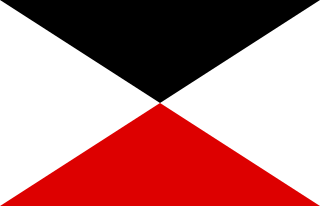
Fritz Theodor Carl von Below was a Prussian general in the German Army during the First World War. He commanded troops during the Battle of the Somme, the Second Battle of the Aisne, and the Spring Offensive in 1918.

The XX Army Corps / XX AK was a corps level command of the German Army before and during World War I.

The Army of the Niemen was an army level command of the German Army in World War I.

The 9th Army was an army level command of the German Army in World War I. It was formed in September 1914 in Breslau to command troops on the southern sector of the Eastern Front. The army was dissolved on 30 July 1916, but reformed in Transylvania on 6 September 1916 for the Romanian Campaign. It was transferred to the Western Front on 19 June 1918 where it was finally dissolved on 18 September 1918.

The 11th Army was an army level command of the German Army in World War I. It was formed in March 1915 in Kassel originally to serve on the Western Front but was transported to Galicia for service on the Eastern Front. The army was dissolved on 8 September 1915, but reformed on 23 September 1915 for the Serbian Campaign. It was finally dissolved on 7 January 1919.

The 12th Army was an army level command of the German Army in World War I formed in August 1915 by the redesignation of Armee-Gruppe Gallwitz. It served exclusively on the Eastern Front and was dissolved on 9 October 1916 when its commander, General der Infanterie Max von Fabeck, was transferred to 8th Army.

Armee-Abteilung Scholtz / Armee-Abteilung D was an army level command of the German Army in World War I. It served on the Eastern Front throughout its existence.

Armee-Abteilung Strantz / Armee-Abteilung C was an army level command of the German Army in World War I. It served on the Western Front throughout its existence.

Armee-Abteilung Gaede / Armee-Abteilung B was an army level command of the German Army in World War I. It served on the Western Front throughout its existence and formed the extreme left wing.

Armee-Abteilung Falkenhausen / Armee-Abteilung A was an army level command of the German Army in World War I. It served on the left (southern) wing of the Western Front throughout its existence.

The Army of the Bug was an army level command of the German Army in World War I named for the Bug River. It was formed against Russia on 8 July 1915 and served exclusively on the Eastern Front. It was dissolved on 31 March 1918.

The South Army was an army level command of the German Army in World War I. It was formed on 11 January 1915 to fight against Russia and served exclusively on the Eastern Front. It was dissolved on 25 January 1918.

The XXXIX Reserve Corps was a corps level command of the German Army in World War I.

The Guards Reserve Corps was a corps level command of the German Army in World War I.

High Command of Coastal Defence was an army level command of the German Army in World War I. It served in Germany throughout its existence.

Armee-Abteilung Woyrsch was an army level command of the German Army in World War I. It served on the Eastern Front throughout its existence.

Johann Karl Hermann Gronau, from 1913 von Gronau, commonly known as Hans von Gronau was a Prussian officer, and General during World War I.

The 54th Corps was a corps formation of the German Army in World War I. It was formed in September 1916 and was still in existence at the end of the war.

The 64th Corps (Württemberg) was a corps formation of the German Army in World War I. It was formed in January 1917 and was still in existence at the end of the war.

The 66th Corps was a corps formation of the German Army in World War I. It was formed on 9 May 1917 and was still in existence at the end of the war.





